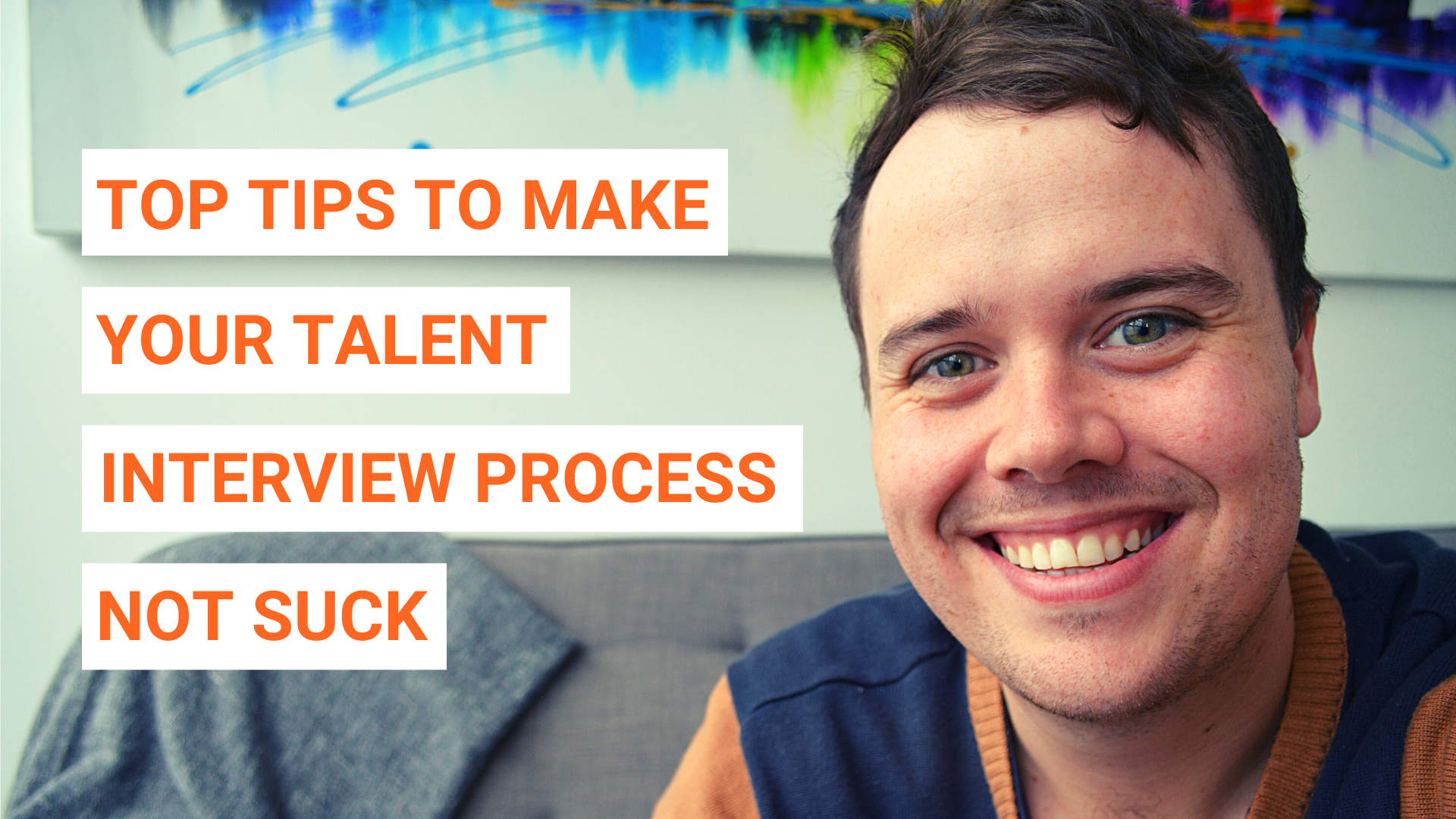Most businesses suck at hiring new staff… now I’m not saying this to be controversial, I’m simply sharing an observation after recruiting 100’s of roles. Now the reasons why most businesses suck at recruiting come down to four things:
- They don't know what they're recruiting for
- There are too many steps in the interview process
- They can't run an effective interview session
- They're slow to provide feedback and the next steps
So, with that in mind, I’m going to share four simple tips that you can use today, to help you with creating an exceptional talent interview experience.
1. Make sure you've scoped the role correctly
Before you even start to advertise a role, it is important that you sit down and actually figure out what the purpose of the position is and what skill sets candidates need to have to be successful in the role. The easiest way to do this is to ask yourself these four questions:
- Why does this role need to exist?
- How will success be measured in the role?
- What are the top three skill sets candidates must have?
- What are another three areas of experience that would be nice to have?
What you want to avoid is creating an unrealistic shopping list of different skill sets and areas of experience that candidates must have. Why? Because you’ll simply never find someone who ticks every single box. How do I know? Because I’ve tried to help dozens of hiring managers find ‘unicorns’ and guess what, they don’t exist.
To summarise
Scope the role clearly before you take it to market because if you know what you’re looking for, it becomes a lot easier to find.
2. Map out the interview process
Before you start interviewing candidates you need to decide on two key things:
- How many interviews will there be?
- Which people need to be involved in the interview process?
Where most hiring managers fail is that they fall into the trap of thinking that more interviews are better. It’s actually the complete opposite. By having a long drawn-out interview process you’ll:
- Have candidates lose interest in the role
- Lose candidates to other companies
- Delay bringing someone on board to support you
A short and sharp interview process is critical. So what I recommend is to aim for 2-3 interviews maximum. Now, keep in mind that you can have more than one person interviewing a candidate at once i.e. you and your manager could interview a candidate together at the same time.
One thing I would say if you do decide to have multiple people interview a candidate at the same time is that you stick to two people maximum who are interviewing at once because candidates (particularly junior candidates) can feel a bit overwhelmed by being interviewed by a panel of people.
3. Decide what questions you're going to ask before the interview
You only get to interview a candidate maybe once or twice (if you’re lucky) before a decision has to be made, so you need to absolutely make the most of the time you have together. The way you do that is by creating a list of the questions you want to ask the candidate to help assess the suitability for the role.
I’m not saying you need to go into the interview and start firing off a million different questions. What I am saying is that it’s important you have at least some structured questions so you can walk away from the interview having the right level of information so you can make an informed decision about which candidates are suitable and which are not.
4. Provide feedback and next steps fast
One sure-fire way to create a terrible interview process is by being slow to provide feedback and the next steps. Whether it’s good feedback or constructive feedback, you still need to let candidates know what is happening in a timely manner.
Why?
Because providing candidates with the next steps is the fastest way to keep candidates engaged and interested in the role.
I’ve seen it happen countless times before. A hiring manager will interview a candidate, they like them, and then they’ll take a week to share the positive feedback that they would like the candidate to move to the next stage. By that point, the candidate has started to lose interest and pursue other opportunities.
“My philosophy is that feedback is a gift, whether it's good, bad or ugly. Candidates just want to know what is happening next. So, what I recommend is that you provide feedback within 24hrs after finishing the interview.”
So in summary, here are the four key things you need to do in order to help create a great interview process:
- Make sure you're clear on what the purpose of the role is and what top skills candidates need to have to be successful.
- Be clear on what the interview process is and who needs to be involved.
- Sit down and figure out what questions you're going to ask in the interview.
- Provide feedback and next steps within 24 hrs after the interview.
Latest.

AI adoption failing isn’t the tech, it’s the people. How smart businesses overcome this.
Technology, Thought Leadership, Industry Trends

Temp-to-perm is the best way to hire today.
Hiring Insights

How to keep top talent: Strategies for successful onboarding
Hiring Insights, Ask Aquent, Training Resources



